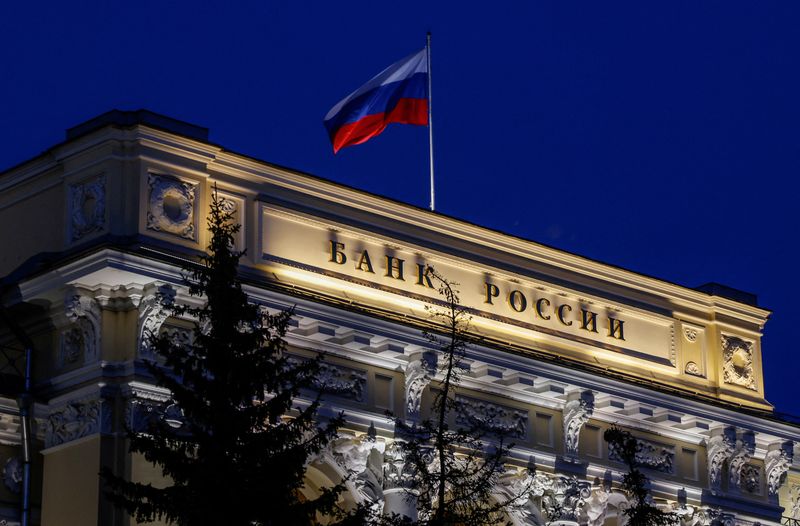(This content was produced in Russia where the law restricts coverage of Russian military operations in Ukraine)
MOSCOW (Reuters) - Russia's central bank has proposed banning Russians with holdings worth less than $550,000 from buying foreign shares, as a step to protect investors after Western sanctions left them with billions of dollars in frozen accounts.
Russia has had a retail investment boom since the COVID-19 pandemic, with small players seeking to make money amid a record number of domestic share flotations and low deposit rates.
Many Russians also bought foreign shares, using accounts now frozen under Western sanctions imposed after Russia sent tens of thousands of troops into Ukraine on Feb. 24. Central Bank Deputy Chairman Philip Gabunia said more than 5 million people in Russia have foreign stocks in frozen accounts, worth a combined value of more than 320 billion roubles ($5.84 billion).
Russia's second largest bourse, SPB Exchange, which specialises in foreign shares, said in May up to 14% of U.S.-listed shares held by its clients should be transferred to a non-trading account, due to restrictions imposed by Brussels-based depository Euroclear.
Seeking to minimise future risks for retail investors, Russia's central bank has already reduced the maximum leverage they can use.

New restrictions would tighten the requirements to obtain qualified status to buy foreign shares, Gabunia told a media briefing. In addition to requiring investors to have holdings worth more than 30 million roubles ($550,000), the change would also require them to pass a knowledge test.
($1 = 54.7500 roubles)